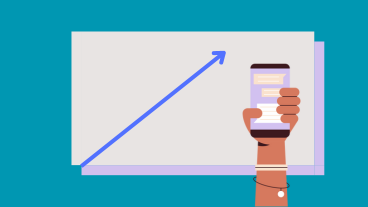The Google Ads vs. Facebook Ads debate sure is getting old, but businesses today are no closer to getting a clear picture than when they started. The misleading, often confusing conjecture that you have to pick either Google or Facebook for online marketing has dramatized the rivalry and overrated the competition.
Many digital marketing consultants, to this day, think it’s Google versus Facebook, but is it?
Why not make it Google and Facebook?
Often viewed as adversaries, you might find it surprising that Google and Facebook serve two entirely different purposes in Internet marketing.
Let’s learn how!
Google vs. Facebook: Truth Revealed
If there’s an answer to the Google vs. Facebook debate, this is it:
Facebook helps businesses to find potential buyers while Google helps potential buyers to find your business.
In simpler terms, Facebook hunts for customers and Google sets up a trap for them.
So, doesn’t it make more sense to leverage both of them for a better ROI? Many businesses today understand the singular strengths of Facebook and Google. As a result, they employ freelance digital consultants to use both to achieve maximum visibility and increase sales.
A coalition of Google and Facebook allows businesses to look for new customers, increase leads, and develop a long-standing presence on the Internet. It allows them to implement strategies exclusive to each platform to get the most out of both Facebook and Google Ads service.
Let’s have a look at some of the big differences between Google and Facebook Ads management.
Google AdWords = Sales
Google Adwords is intent-based. For PPC, Google Ads is the most widely used platform. Why? The reason behind this is simple.
Google Ads management is all about sales. For intent-based businesses, Google Ads is the fast and most effective way to grow sales.
Search engine marketing plays a huge role in attracting more customers and getting traffic on Google. It’s a play on words, more specifically keywords.
AdWords focuses on text-based adverts and keyword targeting. There are certain words (or phrases) Google users enter into the search engine when looking for a certain product or service.
Businesses incorporate these keywords or keyphrases in their advertisements in hopes that their ads will display among the search results for customers’ queries. So, when a customer clicks on an ad, Google charges the advertiser a certain amount of money.
We call this Pay-Per-Click advertising.
Facebook Ads = Marketing
With Facebook, there’s no intent. Facebook advertising allows people to reach a broader audience. Facebook Ads is what you refer to as paid social media advertising. Facebook handles are used to interact and socialize. As a result, it has become a highly competitive platform to procure customers and market a product or service.
Facebook is inherently different from Google Ads in its purpose: it markets your product whereas Google AdWords procures sales. What is the difference, you ask?
A sale is when you make a purchase at that very moment. Marketing is introducing, announcing, and allowing everyone to know what it is you do – like Facebook Ads. It’s a marketing technique that takes time.
You can go customer hunting with Facebook Ads, but you might not catch your first prey for some time. With Google Ads, a customer walks into your trap, and that’s it. You have a sale.
Unlike Google Ads service, Facebook does not use keywords to find new customers. Facebook assesses and leverages the behavior of people, their interests, and their social interactions to connect the right business with the right consumer. It’s AI at its best!
The Key Benefits of Google AdWords
Investing in AdWords may be intimidating for businesses, but it’s worth every penny. Here’s why:
· Faster than SEO
Even though both are SEM marketing techniques that work in a similar fashion, Google AdWords is way faster. The results are instantaneous and almost transparent.
With AdWords, you can use multiple keywords at a time, turn the campaign on or off depending on your business requirements, and have your ads appear in search results almost immediately.
· Large Audience
The recorded number of search queries on Google is over 40,000 searches per second. That statistic alone tells you how far and wide Google can take your business.
By leveraging the power of AI and Machine Learning, Google has grown increasingly sophisticated. Its search volume only keeps increasing witheach passing second, and so does your potential to reach new customers.
· Stand Out from Competition
If your competitors are running ads but you aren’t, they will get ahead of you and you will lose business. With paid search, it’s that simple.
So, it’s important that you keep an eye on your rivals, their ads, and grab opportunities as they come your way. It will help you stand out and tackle your competition better.
The Key Benefits of Facebook Ads
Facebook Marketing takes more time than AdWords, but there are long-term benefits to it. Here are a few of those:
· Large Mobile Audience
As the use of smartphones increases, the importance of mobile traffic is also growing. Mobile data networks allow people to browse their social media from time to time during the day, giving businesses access to a large mobile audience.
Facebook has more than 1.74 billion users that use their Facebook Mobile App daily. Facebook Ads will connect you to these users, and allow you to market your products to a larger audience.
· Greater Visual Support
Facebook ads offer more visual support than the dry, text-based PPC Google ads. Facebook ads are visually more powerful and blend easily with other visual content in the form of videos and captioned images.
Visual ads are not only more persuasive than text-based ads, but they are more capable of conveying a message that compels viewers to make a purchase.
· Cheaper than AdWords
Facebook Ads is the cheapest advertising medium for Internet marketing.
You can literally reach an audience of 1,000 people by spending $5 only. It’s better than running ads on TV commercials, billboards, and other traditional advertising outlets.
Final Verdict
Now, that we’ve established how differently targeted the two advertising platforms are, where does the problem lie for most businesses?
Here:
People treat Facebook Ads like Google Adwords.
They expect Facebook to procure sales in a jiffy instead of marketing their product and giving it time. If leveraged smartly, businesses can use both in a complementary fashion to increase their sales and reach more customers.
That’s all from us. Keep an eye out for our next post!




